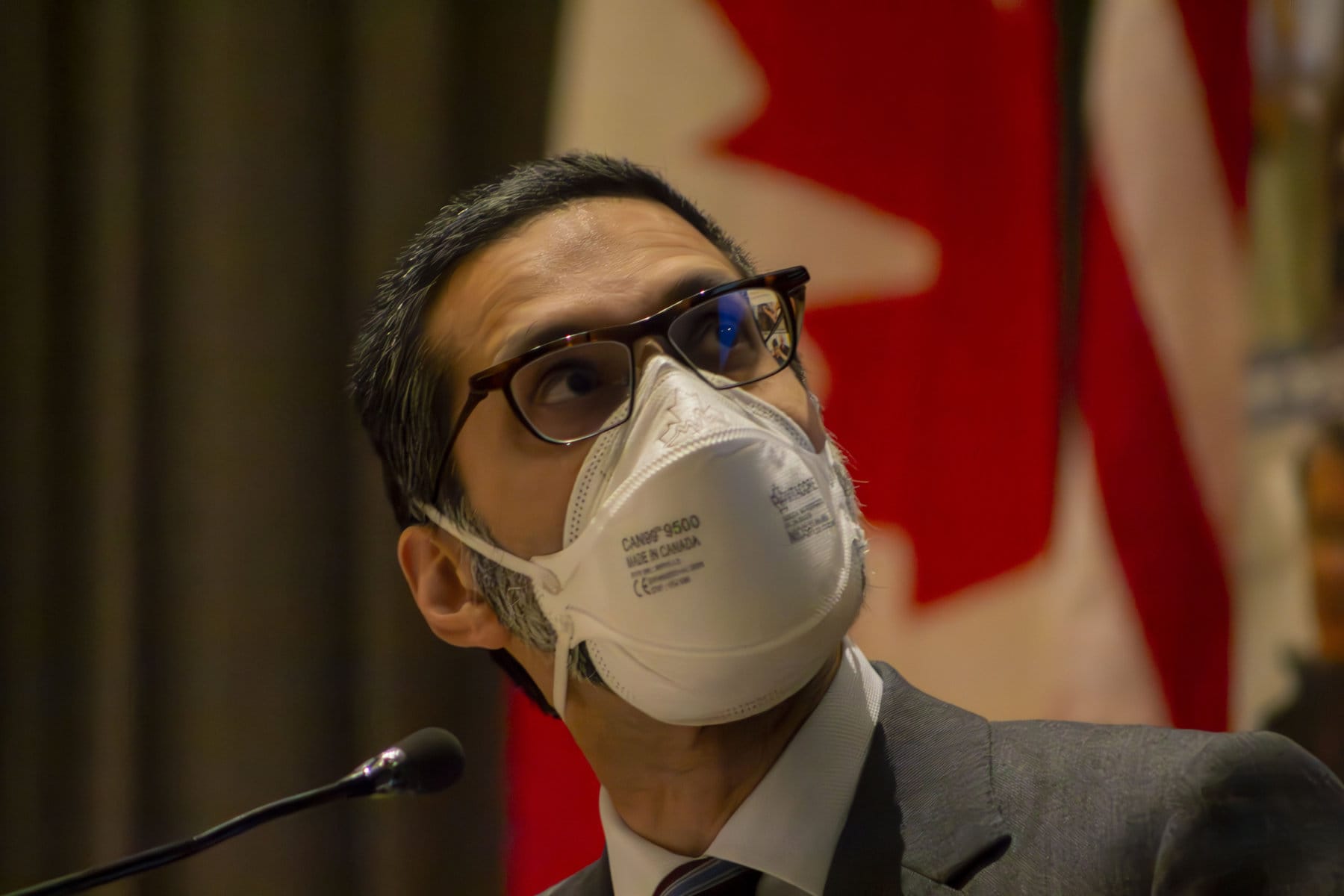On World Polio Day, Dr. Mustafa Hirji drew parallels between the infectious disease and COVID-19 that may help deal with this fall’s uptick in cases.
During Tuesday’s Rotary Club meeting at the Niagara-on-the-Lake Community Centre, Hirji, the region’s associate medical officer of health, looked back on how polio has been dealt with and said there were lessons that could be applied to help control the spread of COVID.
Hirji, who helped lead Niagara’s emergency response throughout the pandemic, wore a mask throughout his presentation and suggested others should wear one when infection rates spike in the winter months.
While COVID-19 has not affected us as badly as it once did, it remains one of the top 10 killers across Canada.
Besides things like improved sanitation, improved CO2 ventilation and choosing outdoor over indoor activity, Hirji insisted the most effective first step in eradicating COVID-19 is making sure your vaccinations are fully up to date.
“It’s free, it’s easy, you can walk right into your pharmacy and get it. I think that’s the easiest step we can all take,” Hirji told The Lake Report.
Lori Beak, a Legion member who was a guest at the luncheon, asked what exactly counts as “fully vaccinated” in 2023.
“I’ve had people who had three shots a year and a half ago and consider themselves fully vaxxed,” she said.
Hirji said about 26 per cent of Canadians who have received all booster doses.
And while three doses would be considered fully vaccinated, the COVID shot is looking to be something like the flu vaccine where residents should aim for an updated booster each year, he said.
“Polio eradication has been successful so far because we’ve got really high vaccine coverage and we need to do that with COVID-19 as well,” he said.
With cases on the rise this fall and cold and flu season coming over the holidays, now may be time for a booster.
“The uptick started in August, through September and into this month. We now seem to be on a downward spiral, which is good news,” he said.
“But we’re dealing with outbreaks. We didn’t have outbreaks in the summer so definitely it’s a real problem right now. I want to make sure we’re protecting the people who are most vulnerable.”
Along with diligent vaccination, Hirji said extra steps can be taken – especially during flu season – to decrease the spread.
When the weather is warmest, he suggested socializing outdoors when possible.
“But we’re in Canada and we have winter, so we can’t be outside all the time,” he said.
“What we need to do is improve our HVAC systems.”
He cited Japan as an example, where improved ventilation systems in indoor spaces and getting CO2 numbers closer to that of outdoor air have been shown to help curb the spread of airborne viruses.
Hirji also noted there’s an annual rise in illness each January.
“I think this has to do with our holiday calendar,” he said.
Considering parties and gatherings in December are followed by a quick return to work and school in the new year, Hirji recommends a shift in our approach to the season.
“Can we have extended holidays? So, if we get sick, when we get better we can go back to work and school. Or maybe we can have a mandatory two weeks where everybody works and studies from home,” he said.









